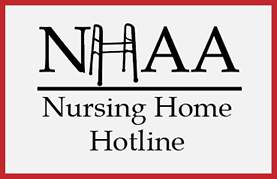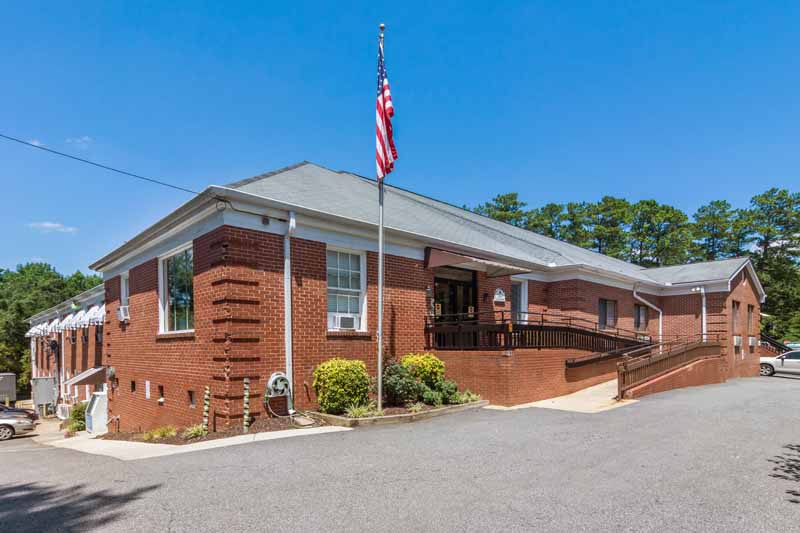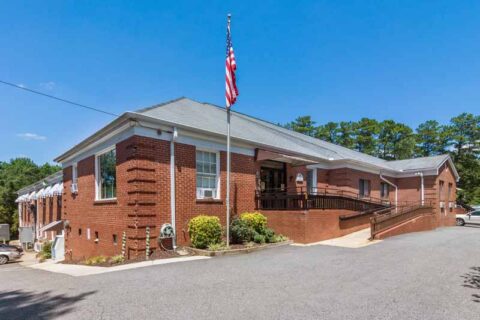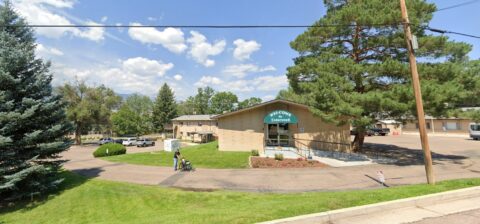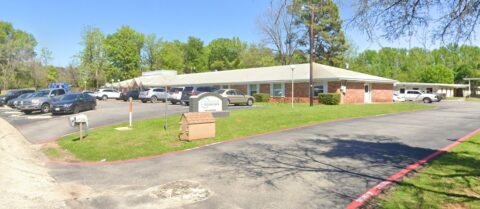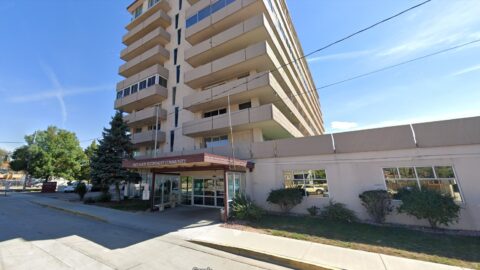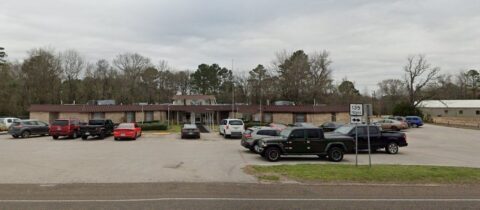State Findings:
The Department of Health & Human Services conducted an inspection of the facility. The following highlighted decencies listed below were found in a public survey.
Timely report suspected abuse, neglect, or theft and report the results of the investigation to proper authorities.
Based on resident and staff interviews, record review, and policy review, the facility failed to ensure abuse allegations were reported in a timely manner for two of three residents (R) (R53 and R40) reviewed for abuse. These failures presented a potential for continued abuse resulting in physical and/or psychosocial harm for R53 and R40.
Respond appropriately to all alleged violations
Based on record review, staff interview, and facility document review, the facility staff failed to thoroughly investigate allegations of abuse for one of three sampled residents (R) (R40) reviewed for abuse.
Create and put into place a plan for meeting the resident’s most immediate needs within 48 hours of being admitted
Based on interview and record review, the facility staff failed to develop a baseline care plan and provide the Responsible Party (RP) a copy of such within 48 hours of admission for one of two sampled residents (R) (R141) reviewed for baseline care plans.
Develop and implement a complete care plan that meets all the resident’s needs, with timetables and actions that can be measured.
Based on staff interview and record review, the facility failed to develop a comprehensive care plan regarding pressure ulcers for one of nine sampled residents (R) (R293) reviewed for pressure ulcers.
Provide appropriate treatment and care according to orders, resident’s preferences and goals.
Based on observations, interviews, and record review, the facility failed to ensure quality of care for four residents (R) (R291, R35, R3, and R48) reviewed for care and services out of a total sample of 56 residents. Specifically, the facility failed to ensure R291 received antibiotics as ordered, R35 received inhaler medication as ordered, and the facility failed to identify the medication refusals of R3 and R48.
Provide appropriate pressure ulcer care and prevent new ulcers from developing.
Based on record review, staff interviews, and facility document review, the facility staff failed to prevent, assess, and treat pressure ulcers appropriately for nine out of 10 residents (R) (R291, R293, R65, R3, R63, R50, R21, R292, and R142) with pressure ulcers. These failures present a likelihood of serious harm, serious injury/impairment, or death related to wound infection and wound deterioration and contributed to hospitalization and subsequent cardiac arrest for R291.
On 11/29/223 a determination was made that a situation in which the facility’s noncompliance with one or more requirements of participation had the likelihood to cause serious injury, harm, impairment, or death to residents.
Provide appropriate care for a resident to maintain and/or improve range of motion (ROM), limited ROM and/or mobility, unless a decline is for a medical reason.
Based on observations, staff and resident interviews, record review, and policy review, the facility failed to ensure two of four residents (R) (R1 and R77) reviewed for positioning and mobility received services required to maintain or improve their abilities. R1 was not provided with services to don and doff a brace to address a potential hand contracture (fixed resistance to passive stretch) and R77 did not receive restorative programs to maintain or improve strength and mobility. These failures created a potential for further contracture for R1 and lack of upper and lower body strength maintenance for R77.
Ensure that a nursing home area is free from accident hazards and provides adequate supervision to prevent accidents.
Based on observation, interview, record review, and facility policy review, the facility failed to conduct post-fall investigations in an effort to prevent future falls for two of three residents (R) (R3 and R140) reviewed for falls. This failure had the potential to lead to increased risk of falls and injuries.
Provide appropriate care for residents who are continent or incontinent of bowel/bladder, appropriate catheter care, and appropriate care to prevent urinary tract infections.
Based on interviews, record review, and facility policy review, the facility failed to ensure that a resident who was incontinent of bladder received appropriate treatment and services to prevent urinary tract infections and to restore continence to the extent possible for one of four residents (R) (R9) reviewed for bladder and bowel incontinence, catheters, and urinary tract infections. Specifically, the facility failed to ensure a resident incontinent of bladder with symptoms of a urinary tract infection received a timely urinalysis and prescribed medication for treatment.
Provide safe and appropriate respiratory care for a resident when needed.
Based on observations, interview, and record review, the facility failed to obtain a physician’s order for the use of oxygen for one of one sampled resident (R)(R3) reviewed for oxygen use.
Provide safe, appropriate pain management for a resident who requires such services.
Based on observations, interviews, record review, and facility policy review, the facility failed to ensure that pain management was provided to residents who require such services, consistent with professional standards of practice, the comprehensive person-centered care plan, and the residents’ goals and preferences for two of three residents (R) (R293 and R2) reviewed for pain management. This failure resulted in harm to R293 for wound care treatment and R2 for chronic pain.
Provide safe, appropriate dialysis care/services for a resident who requires such services
Based on interview, record review, and facility policy review, the facility failed to ensure dialysis services were provided for one of 56 sampled residents (R) (R34). The facility failed to ensure services were consistent with professional standards of practice, the comprehensive person-centered care plan, and the residents’ goals and preferences. Specifically, the facility failed to maintain comprehensive communications with the dialysis center and ensure all medications were appropriately administered to the resident as needed.
Provide pharmaceutical services to meet the needs of each resident and employ or obtain the services of a licensed pharmacist.
Based on interview, record review, and facility policy review, the facility failed to ensure three of seven residents (R) (R38 R192 and R292) reviewed for medication administration received medications as ordered by the physician. Specifically, the facility failed to contact the pharmacy to ensure medications were available for administration for the residents.
Ensure medication error rates are not 5 percent or greater.
Based on observations, record review, and staff interview, the facility failed to ensure R192, R38, and R35 were administered the correct dosage of medications, causing four medication errors out of 31 opportunities for error, or a medication error rate of 12.9%. These failures had the potential to cause adverse drug reactions in the event of overdosing or lack of effectiveness of the medications in the event of underdosing.
Ensure drugs and biologicals used in the facility are labeled in accordance with currently accepted professional principles; and all drugs and biologicals must be stored in locked compartments, separately locked, compartments for controlled drugs.
Based on observation, staff interview, and facility policy review, the facility failed to ensure medications were stored in a locked storage area when left unattended for one of five medication carts (C Hall medication cart) in the facility.
Administer the facility in a manner that enables it to use its resources effectively and efficiently.
Based on observations, resident and staff interviews, record review, and facility policy/job description review, the facility was not administered in a manner that enabled it to use its resources effectively and efficiently to avoid a system failure with the wound care program and lack of Director of Nursing (DON) supervision over the wound care program. The facility failed to prevent, assess, and treat pressure ulcers appropriately and failed to ensure needed physician services were provided by the primary physician (who also served as the facility’s Medical Director) rather than the Nurse Practitioner (NP); the primary physician assessed, measured, and treated pressure ulcers; and the primary physician ensured appropriate treatment and services were provided by the wound care consultant for pressure ulcer prevention, assessment, and treatment. These failures affected nine of 10 residents (R) (R291, R293, R50, R65, R142, R292, R21, R3, and R63) reviewed for pressure ulcers. These failures presented a likelihood of serious harm, serious injury/impairment, or death related to a lack of adequate wound management, which contributed to hospitalization and subsequent cardiac arrest for R291. In addition, the facility failed to conduct an ongoing Quality Assurance and Performance Improvement (QAPI) program that implemented and evaluated corrective actions or performance improvement activities to address systemic failures to prevent, assess, and treat pressure ulcers appropriately and failed to ensure needed physician services were provided by the primary physician, who also served as the facility’s Medical Director.
Designate a physician to serve as medical director responsible for implementation of resident care policies and coordination of medical care in the facility.
Based on observations, resident and staff interviews, record review, and facility policy/contract review, the facility failed to provide needed physician services to ensure admission assessments were provided by the primary physician (who also served as the facility’s Medical Director) rather than the Nurse Practitioner (NP); the primary physician assessed, measured, and treated pressure ulcers; and the primary physician ensured appropriate treatment and services were provided by the wound care consultant for pressure ulcer prevention, assessment, and treatment for nine of 10 resident (R) (R291, R293, R50, R65, R142, R292, R21, R3, and R63) reviewed for pressure ulcers. These failures presented a likelihood of serious harm, serious injury/impairment, or death related to a lack of adequate wound management, which contributed to hospitalization and subsequent cardiac arrest for R291.
Have a plan that describes the process for conducting QAPI and QAA activities.
Based on staff interviews, record review, and facility policy review, the facility failed to ongoing quality assurance and performance improvement (QAPI) program demonstrating systematic identification, reporting, investigation, analysis, and prevention of adverse events; and documentation demonstrating the development, implementation, and evaluation of corrective actions or performance improvement activities to address systemic failures to prevent, assess, and treat pressure ulcers appropriately and failed to ensure needed physician services were provided by the primary physician (who also served as the facility’s Medical Director). These failures affected nine of 10 residents (R) (R291, R293, R141, R50, R65, R142, R292, R21, R3, and R63) reviewed for pressure ulcers.
Provide and implement an infection prevention and control program.
Based on observations, record review, staff interviews, facility document review, and facility policy review, the facility failed to 1. control measures to prevent the spread of COVID-19 among 17 (Resident (R)83, R79, R51, R291, R73, R52, R80, R86, R57, R77, R81, R26, R8, R74, R66, and R28) of 85 current facility residents; 2. follow infection control guidelines during pressure ulcer dressing change observations for four of seven residents (R142, R21, R292, and R63); 3. perform hand hygiene during meal service; and 4. maintain a urinary catheter bag off the floor. At the time of the survey team’s entrance in the facility on 11/27/2023, there were five confirmed cases of COVID-19, with an additional six cases on 11/27/23. On 11/28/2023, the facility reported six more new cases of COVID-19 to the survey team totaling 17 cases of COVID-19 present in the facility. All 17 residents had co-morbid diagnoses which placed them at risk of severe illness or death.
Make sure that the nursing home area is safe, easy to use, clean and comfortable for residents, staff and the public.
Based on observation and interview, the facility failed to provide a safe, functional, sanitary, and comfortable environment for residents, staff and the public. Specifically, the facility failed to ensure resident belongings were stored in a clean room, breaker boxes were properly secured throughout the building, the kitchen maintained a floor that had cleanable surfaces, and outside seating was in good condition.
Your Experience Matters
...and we want to hear it.
NHAA is here to assist families, residents, and the community by sounding the alarm on issues like those found above. This nursing home and many others across the country are cited for abuse and neglect.
If you have or had a loved one living in this nursing home or any other nursing home where you suspect any form of abuse or neglect, contact us immediately.
We have helped many already and we can help you and your loved one as well by filing a state complaint, hiring a specialized nursing home attorney or helping you find a more suitable location for your loved one.
You can make a difference, even if your loved one has already passed away.
Please give us a call at 1-800-645-5262 or fill out our form detailing your experience.
Personal Note from NHA-Advocates
NHAA shares with all the families of loved ones who are confined to nursing homes the pain and anguish of putting them in the care of someone else. We expect our loved ones to be treated with dignity and honor in the homes we place them. We cannot emphasize enough to family members of nursing home residents; frequent visits are essential to our loved ones’ well-being and safety.
If you are struggling and upset, click here to understand your options, or contact us through our contact form or call our toll free hot line number: 1-800-645-5262.
